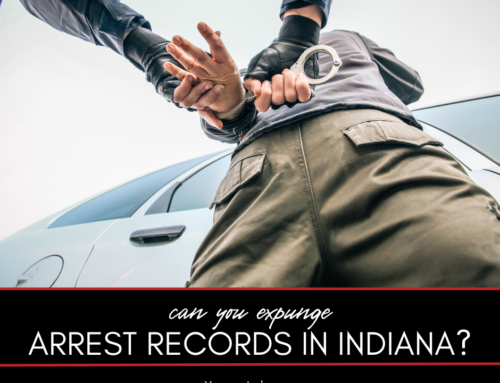
If you want to file a petition to expunge your criminal record in Indiana, you may be wondering what happens if the prosecutor objects. This guide explains what happens when the prosecutor objects and how a judge eventually makes their decision on your petition.
What if a Prosecutor Objects to Your Expungement in Indiana?
First things first: When you file an expungement petition in Indiana, it goes through several steps on its way to a judge’s desk. One of the stops your petition makes is with the prosecutor in the jurisdiction where you filed. The prosecutor has the chance to pass it right along to the judge with a favorable recommendation or an objection to your petition.
An objection means the prosecutor doesn’t believe your criminal record should be expunged. If the prosecutor objects, they’ll note that in your file before passing your petition on to the next interested party. The judge will have a chance to review all the recommendations and objections before making a decision in your case.
Prosecutors only have 30 days to object after receiving a petition. If a prosecutor wants to object but doesn’t do so within 30 days, it’s too late; they can’t file the objection with the judge overseeing your case. (That’s Indiana law.)
If the prosecutor does object, the court has to set a hearing 60 days from the date your petition was filed. That means you’ll have to wait at least two months after filing your petition.
At the hearing, both your attorney and the prosecutor will have a chance to present evidence. Your lawyer can present evidence on your behalf, and you’ll have a chance to speak and advocate for yourself. After everyone has had a chance to be heard, the judge will make a decision on your petition.
The judge will consider everything that happens at the hearing and everything in your petition when making their decision. If they think you deserve an expungement, they’ll grant your petition. If they don’t think you deserve an expungement, they’ll deny your petition.
Related: Can you expunge pretrial diversion in Indiana?
Can the Court Require a Hearing Even if the Prosecutor Doesn’t Object?
Even if the prosecutor doesn’t object, the court still has the option to set a hearing in your case. If the court decides to do this, you’ll be notified and given a chance to attend the hearing. Your attorney can advocate for you in this case; you don’t have to go to court alone.
Related: Indiana felony classes before and after July 1, 2014
3 Common Reasons Prosecutors Object to Expungement Petitions
There are many reasons prosecutors might object to an expungement petition. Some of the most common reasons are:
- You committed a serious crime. If you were convicted of a serious crime, the prosecutor may believe your criminal record should remain public.
- You have a lengthy criminal history. A long criminal history may convince the prosecutor that you shouldn’t be allowed to expunge your record.
- There are factors associated with your offenses that make an expungement seem like a bad idea. The prosecutor may consider things like your effect on the victim or victims of your crime, as well as whether they believe you’re likely to commit another crime in the future.
Crimes You Cannot Expunge in Indiana
Some crimes must remain on your criminal record forever, whether or not a prosecutor objects. You cannot get these crimes expunged from your record in Indiana:
- Sex offenses
- Violent offenses
- Some forms of official misconduct
- Homicide
- Human or sexual trafficking
If you attempt to expunge one of these crimes, your petition will be denied.
Do You Need to Talk to an Indiana Expungement and Sealing Attorney?
If you’re ready for a fresh start, we may be able to help. Call us at 317-647-5476 or fill out the form below for a free consultation on expungement. We’re here to answer your questions and get you the fresh start you deserve.













